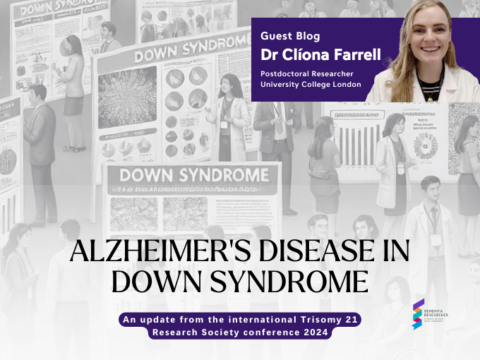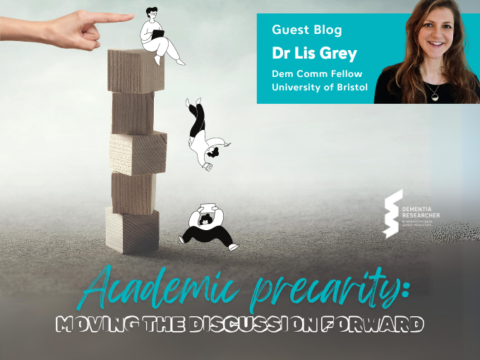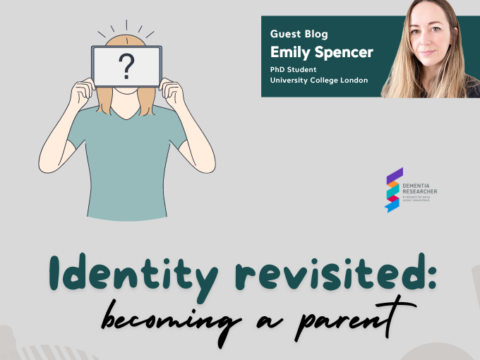We often only hear about academic misconduct when high profile cases hit the news, exposed by – more often than not – whistle-blowers, i.e previous lab members or co-authors that stick their neck out to say ‘hey, this isn’t right’. I don’t think anyone would choose a career in research to deliberately be fraudulent, most scientist and medical researchers behave ethically. But this doesn’t negate that academic fraud is ripe and widespread in many – dare I say it – all, research fields. In this blog I want to take a closer look at what constitutes academic fraud, and I’ll be talking predominantly about my field – neuroscience. I’ll discuss why this practice seems so widespread and consider avenues that might really promote change to curb this issue.
The incident that really hit home for me, was when I happed across an article published in Science by Charles Priller just last November. The title reads, ‘Brain Games? Whisleblowers and former lab members suggest star neuroscientist Berislav Zlokovic may have manipulated data in support of a major stroke trial and important Alzheimer’s research’. Before now the academic fraud I knew about was beyond my research field – don’t get me wrong, I didn’t think neuroscience was impervious to academic fraud, but the names of the researchers, the medics I read about in other cases were unknown, unfamiliar. Zlokovic’s name and his work makes up most of the references in my PhD – how many of those could be fraudulent?
And after astonishment, came anger. If these allegations were indeed true, Zlokovic knowingly fabricated and altered data that was being used in a major clinical trial to mitigate damage caused by ischemic stroke. Working in the stroke field myself I am keenly aware of the urgent need for new and wider reaching therapies, and he was taking advantage of this need for his own personal gain.
Moving past these emotions, let’s talk about academic fraud objectively. Firstly, lets define what it is. In 2019, the Office of Research Integrity (ORI) defined academic misconduct as 1) fabrication – where non existing data and results are created, recorded and reported, 2) falsification – the manipulation of research materials, equipment or process and/or the act of omitting data and results leading to the research not being accurately presented and 3) plagiarism – the appropriation of another person’s ideas, processes, words or results without credit.
To research is to discover. Thus, it should follow, that any discovery from research is informative. Unfortunately, research isn’t always so idealistic.
And now that we have defined it, why is academic fraud a problem? Beyond fuelling the business of the already prominent ‘paper-mill’ market out there – i.e an enterprise that produces, submits and sells authorship of fraudulent scientific manuscripts – it profoundly damages the scientific world and public health. The term fake-news comes to mind – if fraudulent research keeps being poured into the science pool, how do you discern the fakes? Billions of public funds could be spent on follow up experiments and clinical trials that are destined to fail. Early career researchers may be building their entire careers on false results. And even if none of the fraudulent papers are ever read, the results can still become aggregated in repositories, muddying the waters. Public health policies could be informed by inaccurate medical results. Health information may become less accurate. Therapies that are branded safe and effective, may well be the opposite. And in some instances – such as in the Wakefield scandal – research that has proven to be fraudulent is still used to spread misinformation.
But if the scientific and societal cost of academic fraud is so high, why does it still happen? It’s a complicated question to try and untangle, but the best way I can find to summarise it, is that current academic incentives actively conspire against the pursuit of science. What do I mean by that?
Well, for starters, academia does not reward the scrutiny of existing research. Most peer review is done for free, stacked on top of already full academic plates that have little or no time to review manuscripts in detail to ensure the science is sound. Doctored work, such as manipulated images of results or shoddy statistics are missed. It’s no wonder that researchers attempting to replicate the study’s original findings come up short. It’s also often difficult to discern if this tampering is a result of a deliberate attempt to mislead or carelessness or miscommunication between colleagues and authors. Problems with the data are sometimes flagged once the paper has been published and read by a wider audience. Minor issues can be addressed with a process called corrections, but if there is enough evidence that scientific misconduct has taken place, the paper should be retracted, a process that unfortunately is often lengthy and slow.
Second in line is academia’s best-known catchphrase: publish or perish. There are few or no incentives to do more meticulous work. It’s all about the Fast Science. Publications are essential to a scientist seeking tenure. Bibliometrics, such as impact factor and H-index – which measure an author’s influence and impact in their respective field – are used as targets for funding, prestige and even job retention. Furthermore, some universities incentivise their staff by paying bonuses or dishing out promotions upon publication. Some employers even demand a quota of published articles. In the UK, the Research Excellence Framework (REF) which determines the allocation of public funding to institutions, relays on submitting high-quality papers in bulk. As the pressure increases the temptation to cut corners will also – inevitably – increase.
Negative findings are much more difficult to publish than positive ones. How badly do you want or need that high impact publication?
Academia doesn’t offer incentives to replicate, so the race to publish first is on. Little to no funding is given out to labs looking to replicate already published research and journal editors are more prejudiced against publishing replication studies.
The new threat on the horizon: AI. It has never been easier to utilise AI generated and thus fabricated – photos, videos, tables, graphs, you name it. This is just a few mouse clicks away, without even having to step foot in a laboratory. No science has to take place. And as this type of AI fraud starts to take off, it will become even harder to distinguish truth from fiction.
As an early career researcher and a lover of science, I want to believe that science is waking up to and is determined to tackle research fraud. So, what can be done?
Firstly, we need better quality control. Sites such as PubPeer, where researchers can – anonymously comment and flag any discrepancies they see in published research papers, as well as independent science detectives such as Elisabeth Bik and DataColada, have been instrumental in exposing research fraud. But we can’t rely just on individuals. Journals must also invest in quality control measures. Hiring image and statistical analysists that are able to screen papers before publication will be key in discouraging fraudsters.
Using AI to tackle science fraud, instead of falling victims to it. How can we use artificial intelligence to help us detect fabrication, falsification, and plagiarism? And can this technology be employed by journals as a first line of defence?
Better follow up. Journals need to act faster in retracting fraudulent work. Universities also need to be held accountable. Follow ups should take place in institutions where multiple cases of scientific misconduct are flagged.
Stop the fear of speaking up. Individuals that report scientific fraud that is evidence based should receive legal protection. The so call ‘whistle-blowers’ should be able to come forward without having to risk their career, livelihood, reputation and in some cases even their life.
Decouple publication from future funding and employment. Brian Nosek, a professor at the University of Virginia and co-founder of the Center for Open Science is pushing for an academic publishing revolution. Fighting to change the incentives. Nosek is proposing a new publishing format, where publication is coupled with answering the research questions that really matter and – wait for it – where research is published regardless of outcome.
To research is to discover. Thus, any discovery from research is informative. I do really believe this, and I also believe in science. I believe in science’s ability to tackle problems and solve them. Be it world issues or taking an inward look at improving itself.

Dr Gaia Brezzo
Author
Dr Gaia Brezzo is a Research Fellow based within the UK Dementia Research Institute at The University of Edinburgh. Gaia’s research focuses on understanding how immune alterations triggered by stroke shape chronic maladaptive neuroimmune responses that lead to post-stroke cognitive decline and vascular dementia. Raised in Italy, Gaia came to the UK to complete her undergraduate degree, and thankfully, stuck around. Gaia writes about her work and career challenges, when not biking her way up and down hills in Edinburgh.

 Print This Post
Print This Post






“Charles Priller” should be Charles Piller.